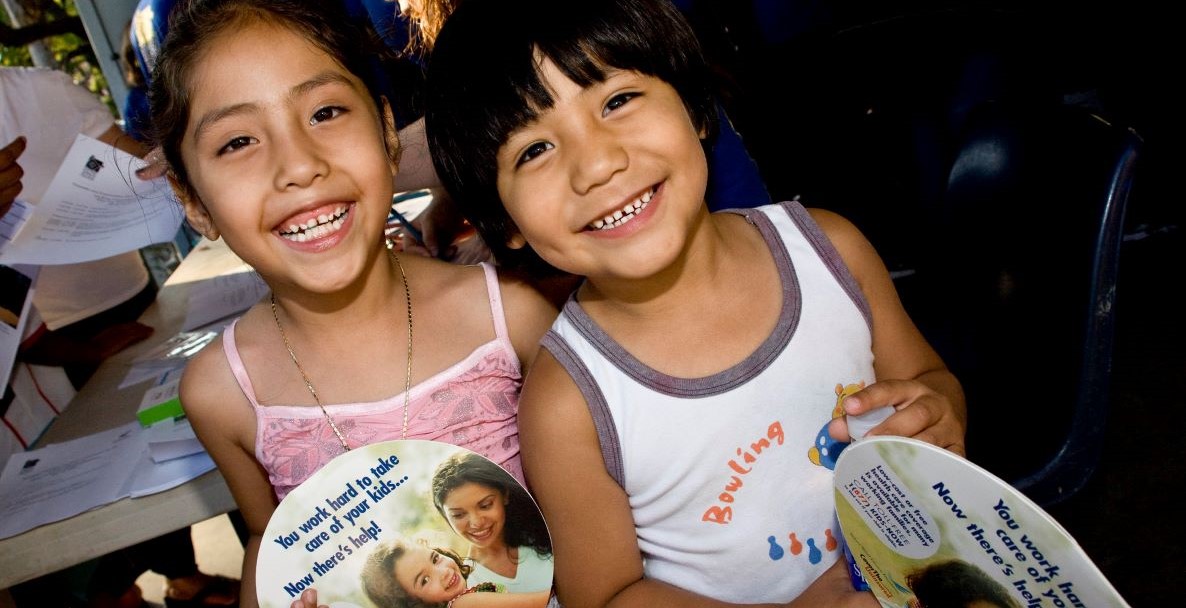Children First’s newest report, which I co-authored, is called Pa’lante: Highlighting the State of Hispanic Children in Philadelphia. We named it that because “Pa’lante” is a widely-recognized Hispanic cultural call to action that means “to move forward.” That’s what Hispanic children need from us.
The report shows that Philadelphia’s Hispanic children are beating the odds in key areas: They have low infant mortality rates; are rarely the perpetrators or victims in gun violence; are generally not involved in the child welfare system; and the share of Hispanic children in poverty dropped from 58 percent in 2015 to 44 percent today.
But the public institutions charged with meeting their basic health, education, and social services needs still fall short. For one thing, education, often seen as a pathway out of poverty, is failing Hispanic children. This is evident when you consider that Hispanic preschoolers in Philly scored the lowest among all racial subgroups on the Kindergarten Readiness Index; only 57 percent of Hispanic students graduate high school on time, compared to 68 percent of Black students; and a mere 22 percent enroll in college the following fall, compared to 33 percent of Black graduates. These interconnected data points underscore the importance of support during early childhood — a critical period when most of a child’s social, cognitive, emotional, and physical development takes place — and a well-resourced K-12 education system.
The report’s findings also forced me to reflect on my journey as a Hispanic child that began when I was two years old and moved with my grandparents to Philadelphia to lay the groundwork for my education. I was reminded of the significant responsibility of serving as a translator between my non-English speaking grandparents and non-Spanish speaking teachers, doctors, and other professionals – a weight I carried as soon as I could string a sentence together. Regrettably, this is a heavy responsibility that many Hispanic children continue to carry when their attention should be on learning, playing, and exploring.
While it may be understandable that bilingual professionals were in short supply in the late 1960s to assist my grandparents and the increasing number of non-English speaking families learning to navigate public systems, it’s disheartening that, even after five decades, these systems are still ill-equipped to provide Hispanic families and their children with the resources and opportunities necessary for their success.
The report offers several recommendations that the City should prioritize immediately. They include:
-
- Expanding access to culturally appropriate, high-quality, affordable child care and pre-k programs and supporting bilingual child care providers.
- Expanding tutoring opportunities during and after the school day for English Language Learners.
- Building an educator pipeline that diversifies the teacher workforce and hiring more Hispanic and bilingual teachers and aids to increase student performance and communicate with non-English speaking families.
- Implementing strategies that connect more Hispanic students to state-of-the-art career-related learning in high school, as these options are proven to boost high school graduation rates and post-secondary enrollment and completion rates.
- Ensuring all Hispanic children have comprehensive medical insurance – including children without citizenship documentation – and increase children’s access to mental health, dental, and vision care.
Looking ahead, there’s a beacon of hope. Children First’s leadership is dedicated to broadening the scope of the Pa’lante report by convening numerous stakeholders keen on strategizing on the systemic changes and resources needed for Philadelphia’s fastest-growing racial subgroup. I plan to do my part and move “Pa’lante” as a member of the Advisory Committee of the Mayor’s Office of Latino Engagement in Philadelphia – where I will contribute my insight as a lifelong Latina resident and child advocate.
Nelida Sepulveda is Children First Director of Special Projects, and Advisory Committee Member for the Office of Latino Engagement for the City of Philadelphia.
The Citizen welcomes guest commentary from community members who represent that it is their own work and their own opinion based on true facts that they know firsthand.
![]() MORE ON THE LATINO COMMUNITY IN PHILLY
MORE ON THE LATINO COMMUNITY IN PHILLY




